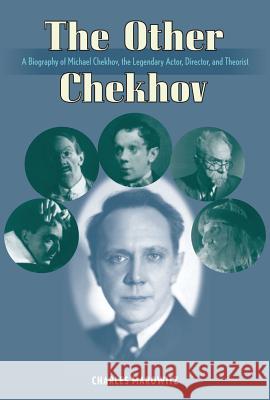The Other Chekhov: A Biography of Michael Chekhov, the Legendary Actor, Director & Theorist » książka
The Other Chekhov: A Biography of Michael Chekhov, the Legendary Actor, Director & Theorist
ISBN-13: 9781557836403 / Angielski / Twarda / 2004 / 330 str.
(Applause Books). The first 30 years of the 20th-century produced a theatrical explosion whose reverberations are still felt today. Stanislavsky, Meyerhold, Vakhtanghov, Michael Chekhov in Russia; Reinhardt, Piscator & Brecht in Germany; and Copeau, Barrault & Artaud in France collectively demolished the 19th-century aesthetic and, in their wake, created the modernity which is the hallmark of today's theatre. Most of these men have already been turned into modern icons; there is no shortage of bios on the pioneers of the Moscow Arts Theatre, and the achievements of the others are chronicled and archived for posterity. Only one of these artists remains murky and ill-defined. He is Michael Chekhov (1891-1955), nephew of the famous playwright Anton Chekhov, the man that Stanislavsky described as "the most brilliant actor in all of Russia." A charismatic actor, an inspiring director and a teacher that developed a dynamic antidote to Russian Naturalism, Chekhov remains the invisible man of the modern theatre. Was he, as Lee Strasberg alleged, a dangerous mystic who would subvert the vigor of Stanislavsky's teachings and undermine the integrity of The Group Theatre? Or was he, as his disciples Yul Brynner, Gregory Peck, Ingrid Bergman, Anthony Quinn, Jack Palance, Leslie Caron, Jennifer Jones, Patricia Neal, Anthony Hopkins, Jack Nicholson & Marilyn Monroe believed, a man who had discovered a unique approach to acting which transcended the precepts enshrined in Stanislavsky's "System." Charles Marowitz was granted special access to the Chekhov archives in Devon, England, and he interviewed actors and directors who worked closely with Chekhov both in Europe and America. The book chronicles Chekhov's influential period in Hollywood when he was nominated for an Oscar for his performance as the avuncular psychiatrist in Alfred Hitchcock's 1945 film Spellbound . It also describes his close association with Marilyn Monroe at the most delicate stage of her career.











